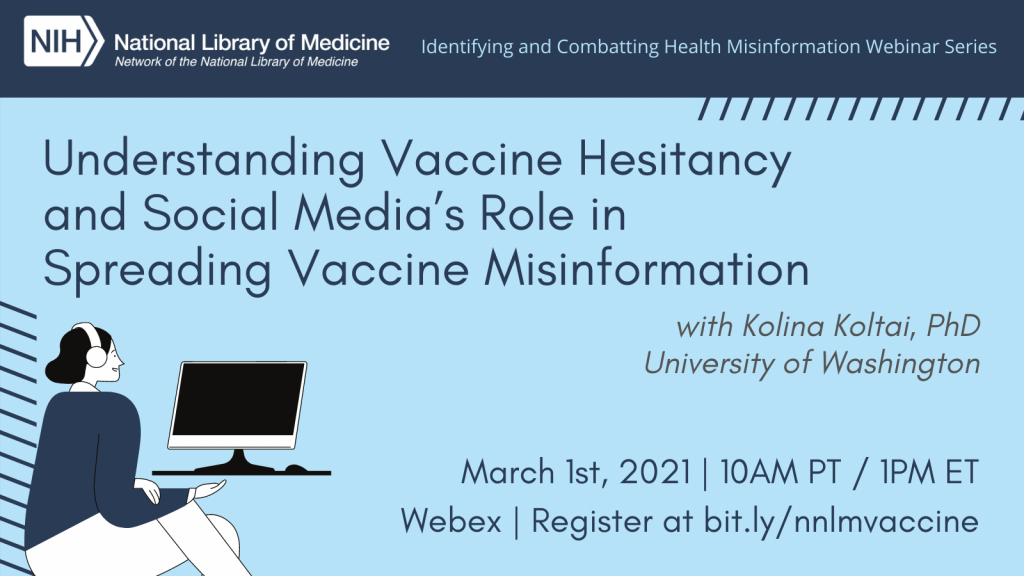Feb
01

Posted by ssawyer on February 1st, 2021
Posted in: #CC/Academic List, #Health Interest List, #Health Sciences List, #Public/K-12 List, All Members
Understanding Vaccine Hesitancy and Social Media’s Role in Spreading Vaccine Misinformation
Vaccine hesitancy has been a longstanding issue, even before the coronavirus pandemic. The growth of vaccine hesitancy in recent years is most commonly attributed to the anti-vaccine movement. Social media is often at the heart of this conversation as a tool used to spread vaccine opposed information and to connect vaccine-hesitant people with each other. This webinar aims to give an overview of understanding vaccine hesitancy, both around childhood vaccines and the COVID-19 vaccine, and how social media has facilitated this movement.
Learning objectives:
1. Understand why someone is vaccine-hesitant or “anti-vaccine”
2. Understand how social media (e.g., Twitter, FB, etc.) has influenced the growth of vaccine hesitancy
3. Identify the next steps going forward to solve the issue.
Speaker:
Kolina Koltai studies how groups’ use of sociotechnical systems affects decision making and information behavior. She researches information-seeking behaviors, trust assessment of information (and misinformation), and decision making with a focus on when people dissent from the scientific mainstream (e.g., vaccine dissent). She specifically focuses on how social networking sites and digital communities interact with information behavior practices around health and science. Koltai received her Ph.D. in Information Studies from the School of Information at the University of Texas at Austin and is currently a Postdoctoral Fellow at the Center for an Informed Public at The University of Washington.
Class Date:
Region/Office: National, MCR
Mar 1, 2021
11:00 MT/ 12:00 CT
Continuing Education Credits: 1
